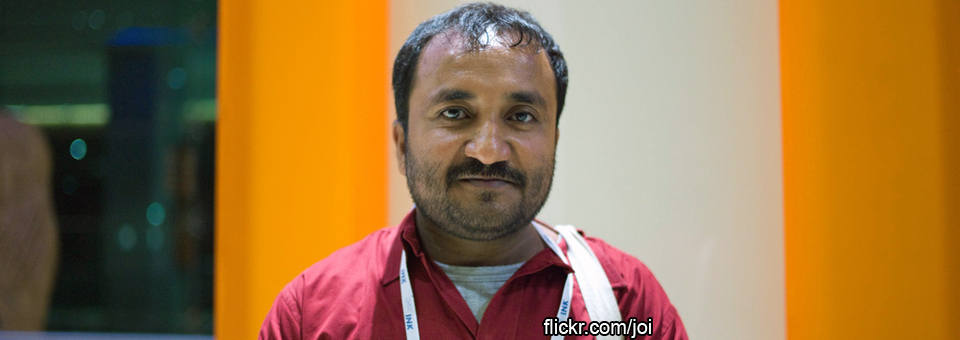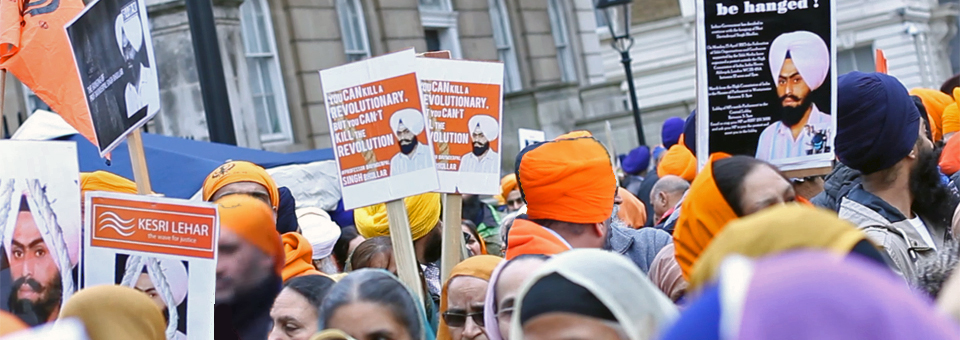People all over the world yearn for joy and have dreams that they want to achieve. These aspects are an important part of any individual’s life but sometimes we fail due to no shortcomings of our own. Despite being a holder of a Masters degree in Mathematics, a young man from Bihar lost his dream of attaining a Doctorate degree from Cambridge University due to a lack of funding and after the death of his father. But this individual instead made a commitment that whatever the odds he has to endure, he will create a space in his surroundings where other people in the same situation wouldn’t suffer the same way and would be assisted by him and his family to fulfil their dreams. Twenty years later, Anand Kumar is able to look back as an internationally-recognised educator who has helped hundreds of students find joy and success.
From a small education centre in Patna, a city in Bihar (and birth-place of Guru Gobind Singh), Anand Kumar has tutored 306 students from across Bihar and other states to enter elite institutes like the Indian Institute of Technology (IIT). Using his own humble resources and assisted by his brother and mother who cook for the thirty students he accepts each year, Anand Kumar coaches them in his Super 30 programme to have the chance of studying and graduating from noted institutions. Many of those in his classes come from weaker sections of society including labourers, cobblers, construction workers and landless farmers, who he inspires to do the same when they attain success – to help others.
Anand Kumar studied in a Government school and coming from a poor background went through severe hardships to attain his degree in Mathematics. He spent time selling small items on the streets of Patna like ‘pappad’ made by his mother at home which is a far cry from where he is today. Once awarded as one of the top twenty teachers in the World, Anand Kumar’s story has been covered by the likes of Time magazine, the Discovery Channel and Newsweek and a feature film ‘Arakhshan’ touched on issues about his work. He has been described as a humanitarian who created hope where there was none and it’s easy to see why. A recently qualified student from his programme, Sunil, could not afford to gather the fifty rupees needed to apply, but was accepted for free and says that what Anand Kumar is doing for the poor is something only the Messiah could do; he says that he will try to follow in his footsteps.
Before starting the Super 30 programme in 2002, he started out teaching just two students in 1995, but growing rapidly to enlist some 500 students. Through teaching tuition classes elsewhere for other students who can afford it, Anand Kumar is able to use that money to upgrade the lives of other students who are not so lucky and some are even funded on their degree studies. He has no Government funding or external donations, but a number of his students return to assist him and the programme. That is a great reward itself and a symbol of the collective development which he is a symbol of. It is a deep shame that a concept like this which is deeply rooted in Sikh philosophy is hardly practiced amongst Sikhs. Since the horrible events of 1984, many Sikh organisations claiming to uplift the Sikh nation through different measures like opening-up schools have not lived up to the example of a single individual like Anand Kumar. Even the Kalgidhar Trust which runs hundreds of Sikh schools in various parts of India under the title Akal Academy, started with a promise to upgrade the education level of young Sikhs. Dependent largely on donations from western world Sikhs by making emotional appeals, their main promise was to bridge the gap between urban and rural education level but the result card is nowhere near the SUper 30 programme.
One estimate says that 80% of donations from Sikhs in the western world go to Akal Academies who promise humanity and betterment of Sikhi through their schools and two Universities, but they have in fact become commercial hubs and more like monestaries from where majority of students rarely make it out to elite degree colleges. The example of Anand Kumar is a case study for Sikhs to really think deeper about what education is and see how it should be incorporated in our Sikh culture today. Our great Gurus were the symbols of humanity during their times and we should live up to that standard by stressing a humanitarian aspect, not just spirituality. Education enhances understanding and can make us all better people, just as Anand Kumar has shown.






